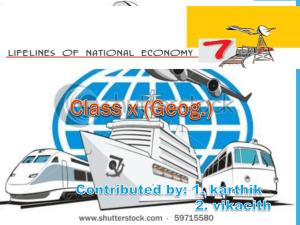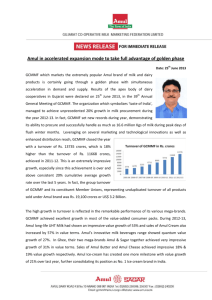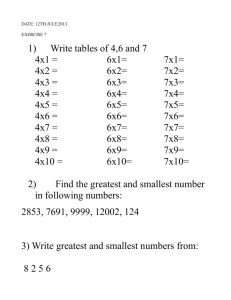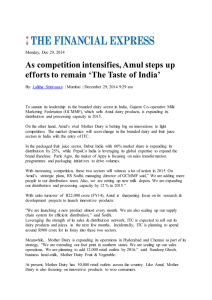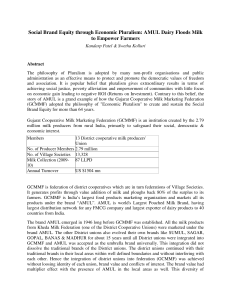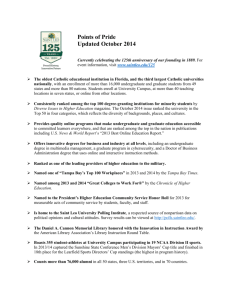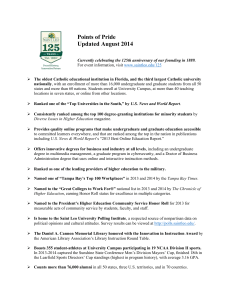13.08.2015 China, Pakistan sign deals to beef up CPEC project
advertisement
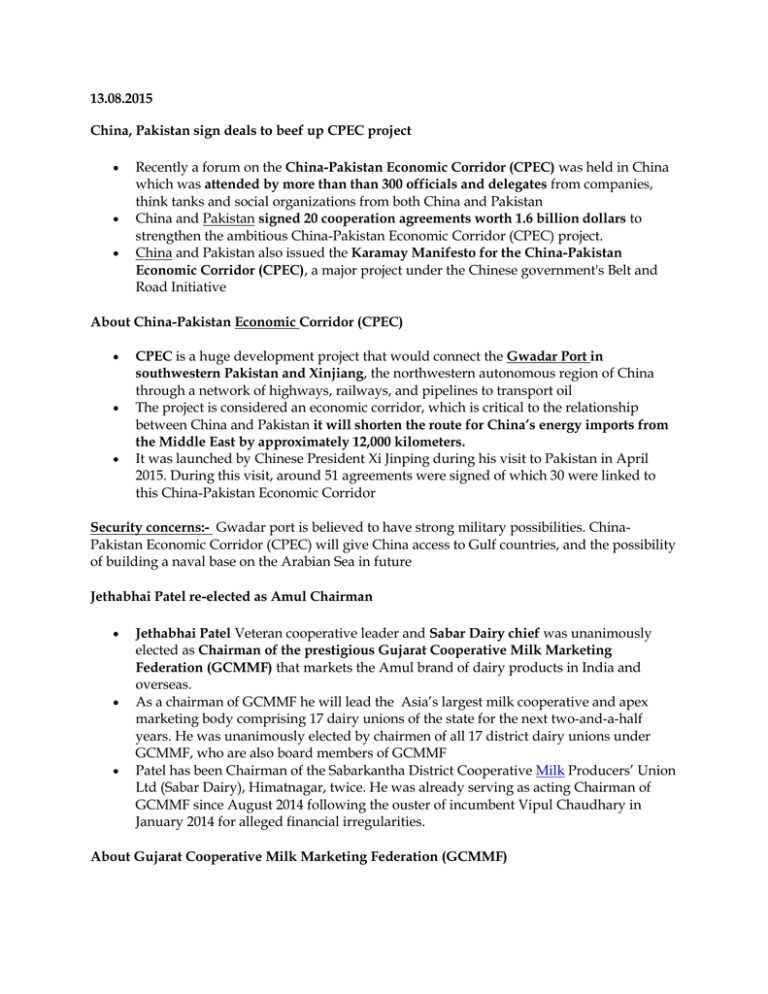
13.08.2015 China, Pakistan sign deals to beef up CPEC project Recently a forum on the China-Pakistan Economic Corridor (CPEC) was held in China which was attended by more than than 300 officials and delegates from companies, think tanks and social organizations from both China and Pakistan China and Pakistan signed 20 cooperation agreements worth 1.6 billion dollars to strengthen the ambitious China-Pakistan Economic Corridor (CPEC) project. China and Pakistan also issued the Karamay Manifesto for the China-Pakistan Economic Corridor (CPEC), a major project under the Chinese government's Belt and Road Initiative About China-Pakistan Economic Corridor (CPEC) CPEC is a huge development project that would connect the Gwadar Port in southwestern Pakistan and Xinjiang, the northwestern autonomous region of China through a network of highways, railways, and pipelines to transport oil The project is considered an economic corridor, which is critical to the relationship between China and Pakistan it will shorten the route for China’s energy imports from the Middle East by approximately 12,000 kilometers. It was launched by Chinese President Xi Jinping during his visit to Pakistan in April 2015. During this visit, around 51 agreements were signed of which 30 were linked to this China-Pakistan Economic Corridor Security concerns:- Gwadar port is believed to have strong military possibilities. ChinaPakistan Economic Corridor (CPEC) will give China access to Gulf countries, and the possibility of building a naval base on the Arabian Sea in future Jethabhai Patel re-elected as Amul Chairman Jethabhai Patel Veteran cooperative leader and Sabar Dairy chief was unanimously elected as Chairman of the prestigious Gujarat Cooperative Milk Marketing Federation (GCMMF) that markets the Amul brand of dairy products in India and overseas. As a chairman of GCMMF he will lead the Asia’s largest milk cooperative and apex marketing body comprising 17 dairy unions of the state for the next two-and-a-half years. He was unanimously elected by chairmen of all 17 district dairy unions under GCMMF, who are also board members of GCMMF Patel has been Chairman of the Sabarkantha District Cooperative Milk Producers’ Union Ltd (Sabar Dairy), Himatnagar, twice. He was already serving as acting Chairman of GCMMF since August 2014 following the ouster of incumbent Vipul Chaudhary in January 2014 for alleged financial irregularities. About Gujarat Cooperative Milk Marketing Federation (GCMMF) GCMMF, popularly known as Amul, is Asia’s largest dairy cooperative marketing body, that exclusively markets products under the brand name of Amul and Sagar. Gujarat Co-operative Milk Marketing Federation Ltd. (GCMMF), based at Anand in the state of Gujarat, India is jointly owned by 3.6 million milk producers in Gujarat. It was formed by late Dr. Verghese Kurien in 1973 who was the founder-chairman of the GCMMF for more than 30 years (1973–2006), he is credited with the success of Amul Note :- Over the last five and a half decades, dairy cooperatives in Gujarat have created an economic network that links more than 3.1 million village milk products with millions of consumers in India. Its daily milk procurement is approx 14.85 million lit per day from 18,536 village milk cooperative societies, 17 member unions covering 31 districts, and 3.37 million milk producer members. More than 70% of the members are small or marginal farmers and landless labourers including a sizeable population of tribal folk and people belonging to the scheduled Railways Ministry inked four MoUs to save power, improve efficiency Railway Ministry has signed four memorandum of understanding (MoUs) with Power and New & Renewable Energy Ministry for energy conservation, transmission and solarisation. The agreements was a step toward increasing savings on the power front for the Railways, which is the largest power consumer in the country and generates current energy bill of Rs. 12,500 crore The agreements signed are:1. First MoU was signed between the Power and Railways Ministries for knowledge sharing in the field of electricity and energy conservation to reduce the cost of electricity for the Railways. 2. Second MoU was signed with the Ministry of New & Renewable Energy to promote solar energy usage and thus create an alterantive source of power 3. Third MoU was signed between Railway Ministry and Bureau of Energy Efficiency to identify technologies to improve energy utilisation 4. Fourth MoU was signed between the Railway Energy Management Company and Energy Efficiency Services Ltd for implementation of energy efficient systems and conservation projects for the Railways Note :- The Railways has saved Rs. 2,500 crore over the last five years in energy costs. This must become a yearly practice now and a target of Rs. 2,000 crore has been set for this year Azim Premji, Shiv Nadar among world’s 20 richest tech czars According to Forbes magazine's inaugural list of 20 richest tech tycoons in the world Azim Premji chairman of Wipro and Shiv Nadar founder of HCL are the only two Indian tycoons in the top 20 richest people in the world of technology. As per the Forbes' first ever list of "100 Richest People In Tech" Seventy-year-old Azim Premji with net worth of Rs. 17.4 billion dollars has been ranked 13th while Shiv Nadar with net worth of Rs. 14.4 billion dollars has been ranked 14th Indian-origin tech tycoons Romesh Wadhwani and Bharat Desai are also in the list . Wadhwani, the CEO and Chairman of Symphony Technology Group, has been ranked 73rd with a $2.8 billion while Desai and his family have been ranked 82nd with a net worth of $2.5 billion. Key Facts : The list has been dominated by American billionaires who have occupied 51 of the 100 slots while 33 are occupied by tech barons from Asia. The list has only seven women, the wealthiest of whom is Laurene Powell Jobs, the widow of Apple's late chief Steve Jobs, with an estimated net worth of 21.4 billion dollars. Top Five in the list are : Microsaft's Bill Gates has ben ranked first in the list with a net worth of $79.6 billion Oracle chairman and CTO Ellison with a net worth estimated at $50 billion has been ranked second Jeff Bezos the founder and CEO of Amazon.com has been ranked third in the list Facebook co-founder Mark Zuckerberg has been ranked four Google co-founder Larry Page has been ranked five and Sergey Brin ranked sixth Twenty one million dollars worth benefits distributed to Indian startups through Facebook's FbStart Social network giant Facebook has given benefits of around 21 million dollars to Indian developers as part of its FbStart initiative. Facebook which has more than 70 per cent of its developers outside the U.S. is distributing the beneftt of 50 million dollars in the Asia-Pacific region Hyderabad-based Samosa and Delhi’s Cardback are two Indian beneficiaries of the programme who have got 21 million dollars About FbStart : FbStart is a programme launched last year to help early-stage mobile start-ups build and grow their applications. Under this, Facebook runs two tracks called ‘Accelerate companies’ and ‘Bootstrap companies’ and for which it will provide software and tools worth 80,000 dollars and 30,000 dollars respectively to developers. As part of its plan to reach developers across the world, FbStart is being organised across 20 cities to meet mobile developers. In the Asia-Pacific region, FbStart was organised in countries like Hong Kong, South Korea, Taiwan and India. In India, the event is being organised in Bengaluru and Gurgaon. In Asia, Facebook has more than 1,000 members as part of the FbStart programme. Union Cabinet approved MoU between India, Nepal for construction of petroleum pipeline The Union Cabinet approved the signing of a Memorandum of Understanding (MoU) between India and Nepal for the construction of a petroleum products pipeline from Raxaul (Bihar) to Amlekhgunj in Nepal and re-engineering of Amlekhgunj Depot. The MoU will promote bilateral cooperation in the oil and gas sector and secure long term supply of petroleum products to Nepal. It would help preserve the environment along the route and decongest the international border at Raxaul. Highlights of the Project The Indian Oil Corporation has been entrusted with the job of construction of the pipeline and re-engineering of the Amlekhgunj Depot and allied facilities. The project will be completed in two phases. In the first phase, a petroleum products pipeline from Raxaul to Amlekhgunj would be constructed. The Indian Oil Corporation will bear a cost of Rs. 200 crore for the first phase of the project. There will be a long term contract of 15 years (initial contract for five years extendable for two terms of five years each) between the Indian Oil Corporation and the Nepal Oil Corporation Uninor signed Rs 1,200 cr contract to Huawei for modernising its network Norweign telecom major Telenor’s Indian arm, Uninor, has signed a contract worth Rs 1,200 crore to Chinese firm Huawei to modernise and manage its network across six circles in India within a three-year time frame. Under the deal, all 24000 base station will be swapped with new equipments. The deal also involves Huawei becoming the managed services partner of Uninor. This is the largest deal of its kind in the Indian telecom industry and also within the Telenor Group in which Huawei India will modernise Uninor’s entire telecom network across six telecom circles with 24,000 base stations The project will start this year with modernisation of 5,000 mobile tower sites. The remaining 19,000 sites will be modernised in 2016. Uninor has about 40 million mobile subscribers in the country with 24 % of active data users. Huwai announced that the network modernisation will be done in environment-friendly green solutions that would lower power consumption by almost 30 per cent and increase spectral efficiency Cabinet Committee on Economic Affairs (CCEA) approves Rs 6,000 crore soft loans to sugar mills To infuse liquidity into the sugar industry and facilitate clearing of cane dues arrears, the Cabinet Committee on Economic Affairs, has approved a soft loan scheme to the extent of Rs. 6000 crore for the current sugar season. About Soft loan Scheme: The CCEA has further mandated that banks pass on the financial assistance directly to the cane growers after obtaining the list from the mills. The scheme provides soft loans only to those sugar industries which have cleared at least 50 percent of their outstanding arrears. The Government has provided one year moratorium on this loan, and will bear the interest subvention cost to the extent of Rs. 600 crore for the said period. To further liquidation of arrears and increase coverage of the soft loan scheme, the government has decided to extend the date of achieving eligibility under the soft loan scheme from 30.6.2015 to 31.8.2015. Now mills are required to discharge 50 percent of cane dues payable by 31.8.2015 to become eligible for the loan. Steps taken by the government to promote sugar industry: The Central Government has taken several steps to mitigate the situation by infusing liquidity into the sector. The export incentive on raw sugar has been increased from Rs 3200/MT to Rs. 4000/MT. Funds have been allocated to support 14 lac MT (LMT) of raw sugar exports as against 7.5 LMT achieved last year. The Government had also increased import duty to 40 percent, abolished the Duty Free Import Authorization Scheme, to prevent possible leakages of sugar in the domestic markets. The Government has also reduced the export obligation period from 18 months to 6 months under the Advanced Authorization Scheme. These measures are intended to improve price sentiments. Cabinet Approves Spectrum Sharing Guidelines Union cabinet chaired by the prime minister, Narendra Modi gave its approval to spectrum sharing guidelines based on the recommendations of the Telecom Regulatory Authority of India (TRAI). TRAI Guidelines: Spectrum sharing would be allowed only for the access service providers in the first instance in a Licensed Service Area (LSA), where both the licensees are having spectrum in the same band Leasing of spectrum will not be permitted. For the purpose of charging Spectrum Usage Charges (SUC), licensees shall be considered as sharing their entire spectrum holding in the particular band in the entire LSA. Spectrum sharing will be restricted to sharing by only two licensees subject to the condition that there will be at least two independent networks provided in the same band Spectrum Usage Charges (SUC) rate of each of the licensees post-sharing shall increase by 0.5 percent of Aggregate Gross Revenue (AGR). Pankaj Advani won 13th World Snooker Championship India’s star Snooker player Pankaj Advani clinched his 13th world title, by outplaying the Chinese player Yan Bingtao 6-2 in the World 6-Red Snooker Championship, held in Karachi. Advani also won the 2014 IBSF World 6-Red Snooker Championship, on his debut in that discipline. He is the only player ever to win professional world titles in both the long and short formats of snooker (15-red standard, and 6-red) and both formats of English billiards (time and point) Advani is also India's first world champion in 6-red snooker. It should be noted that Yan Bingtao, 15, is the youngest player to win the Amateur World Snooker Championship (2014). ISRO teams up with Urban Development ministry, to map 4,041 towns The Indian Space Research Organisation (ISRO) has tied up with the Union Urban Development Ministry for mapping over 500 towns and cities with an aim to make a base plan for better planning and management. This base plan will further help the town planners to prepare a master plan for many fast urbanising local bodies. The mapping is being currently done for municipal local bodies with a population of more than a lakh. ISRO has tied up with the Ministry of Urban Development to map over 4,041 areas. Which includes around 500 urban local bodies After mapping these cities and towns a base paln will be prepared which can help urban planners prepare a better master plan ISRO will map and provide management plans for heritage sites and monuments of national importance. Over 2,500 town planners have been roped in and trained on how to use the base plan. Bhuvan " Mapping India " ISRO launched the beta version of its web-based GIS tool, Bhuvan, on August 12, 2009. Bhuvan offers detailed imagery of Indian locations compared to other Virtual Globe Software, Bhuvan is a software application which allows users to explore a 2D/3D representation of the surface of the Earth. The browser is specifically tailored to view India, offering the highest resolution in this region and providing content in four local languages The National Remote Sensing Agency played an important role in the development of this product. ISRO has used data provided by satellites including Resourcesat-1, Cartosat-1 and Cartosat-2 to get the best possible imagery of India.
